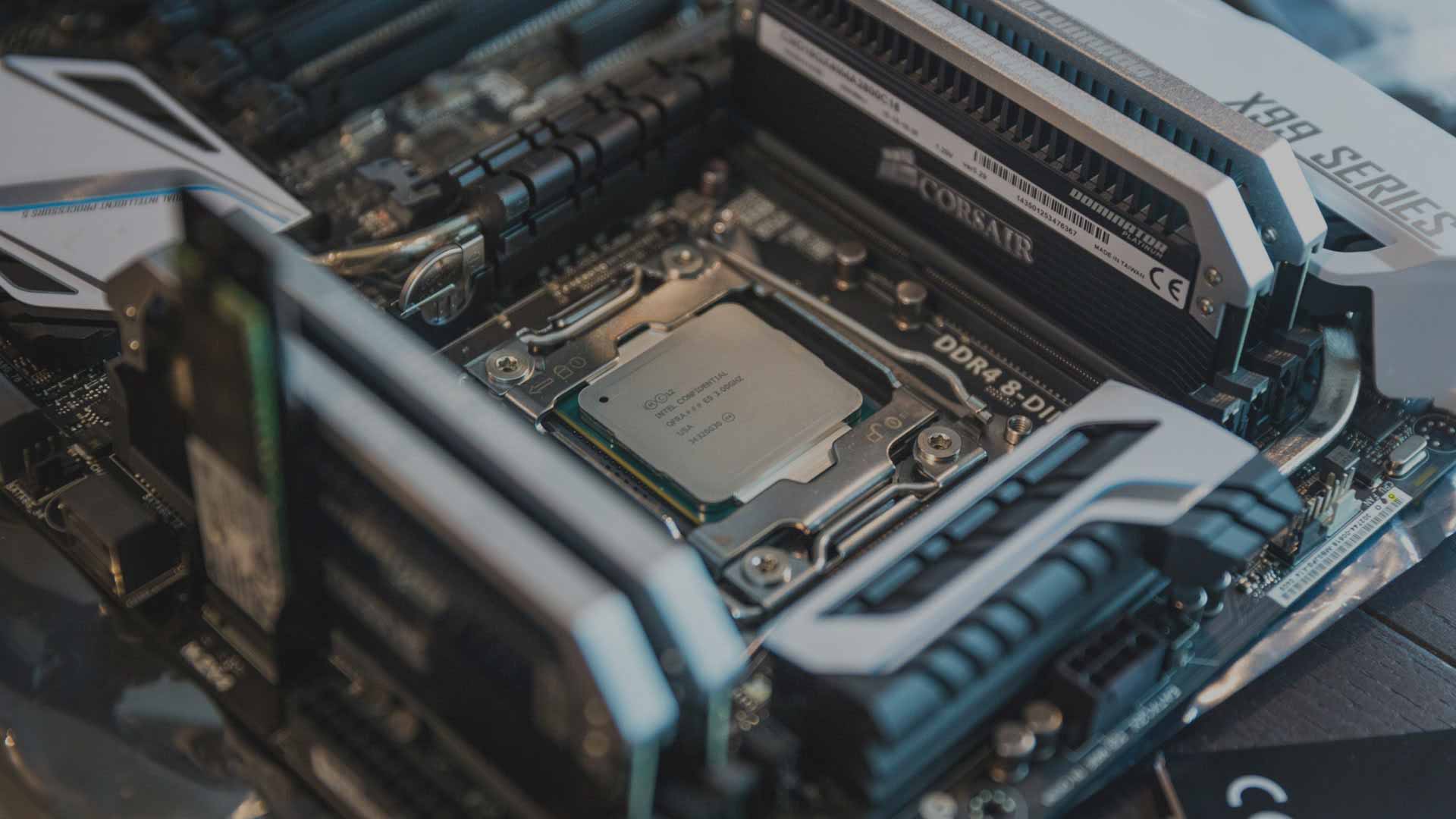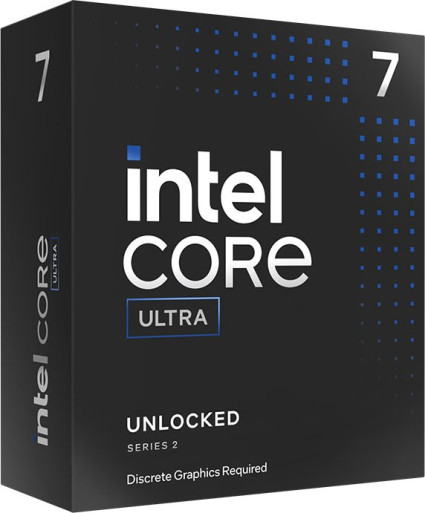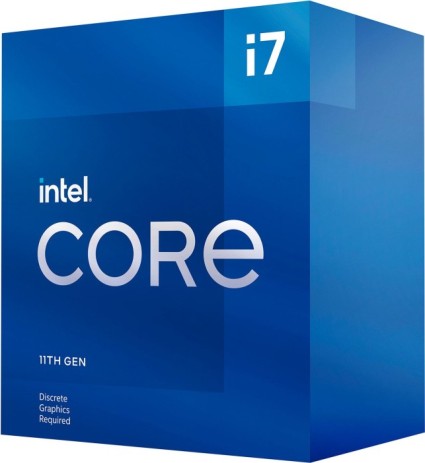
Intel Core Ultra 7 265KF vs. Intel Core i7-11700F
In diesem Vergleich von Intel Core Ultra 7 265KF versus Intel Core i7-11700F vergleichen wir die technischen Daten der beiden CPUs. Welcher Prozessor ist schneller? Hier gibt es FPS & Benchmarks in Gaming und Anwendungen.
Hinweis: Unsere Links sind Affiliate Links. Wir erhalten beim Kauf eine kleine Provision, ohne dass sich euer Preis erhöht.

Allgemeine Informationen
| Günstigster Preis |
|
|
| Serie | Intel Core Ultra 200 | Intel Core i-11000 |
| Chip-Architektur | Lion Cove (P-Core) + Skymont (E-Core) | Cypress Cove |
| Codename | Arrow Lake-S | Rocket Lake-S |
| Produktname | Intel Core Ultra 7 265KF | Intel Core i7-11700F |
Spezifikationen
Die Anzahl der Rechenkerne, die maximale Taktrate und die Größe des Cache können sich auf die Leistung in Spielen und Anwendungen auswirken. Mit 20 Kernen bietet der Intel Core Ultra 7 265KF deutlich mehr Kerne als der Intel Core i7-11700F mit 8 Rechenkernen. Der maximale Takt liegt beim Intel Core Ultra 7 265KF mit 5.50 GHz höher als beim Intel Core i7-11700F mit 4.90 GHz. Der Cache ist beim Intel Core Ultra 7 265KF mit 36 MB L2-Cache + 30 MB L3-Cache zu 4 MB L2-Cache + 16 MB L3-Cache deutlich höher als beim Intel Core i7-11700F.
| Kerne (Gesamt) | 20 | 8 |
| Anzahl P-Cores | 8C | 8C |
| Anzahl E-Cores | 12c | - |
| Basis-Takt | 3.90 GHz | 2.50 GHz |
| Takt P-Cores | 3.90 GHz | 2.50 GHz |
| Takt E-Cores | 3.30 GHz | - |
| Turbo-Takt | 5.50 (Turbo Boost Max 3.0) GHz | 4.90 (Turbo Boost Max 3.0) GHz |
| Turbo P-Cores | 5.50 (Turbo Boost Max 3.0) GHz | 4.90 (Turbo Boost Max 3.0) GHz |
| Turbo E-Cores | 4.60 GHz | - |
| Gesamter L2-Cache | 36 MB | 4 MB |
| Gesamter L3-Cache | 30 MB | 16 MB |
| Fertigung | TSMC 3 nm | Intel 14 nm+++ |
| Rechenleistung | - | - |
| Leistungsaufnahme (TDP) | 125W (Processor Base Power) 250W (Maximum Turbo Power) |
65W |
Mainboard-Kompatibilität
Während der Intel Core Ultra 7 265KF den Intel 1851 Sockel nutzt, ist der Intel Core i7-11700F mit Mainboards für den Sockel Intel 1200 kompatibel. Die genaue Chipsatz-Eignung und die unterstützten PCIe-Lanes können Sie der Tabelle entnehmen.
| Sockel | Intel 1851 | Intel 1200 |
| Chipsatz-Eignung | Z890 | B560, H470, H510, H570, Q470, W480, W580, Z490, Z590 |
| PCIe-3.0-Lanes | - | - |
| PCIe-4.0-Lanes | - | 20x |
| PCIe-5.0-Lanes | 24x (verfügbar: 20) | - |
RAM-Kompatibilität
Während Sie beim Intel Core Ultra 7 265KF bis zu 192 GB vom Typ DDR5 im Dual Channel verbauen können, unterstützt der Intel Core i7-11700F bis zu 128 GB DDR4 Arbeitsspeicher.
| Speicher-Controller | DDR5 | DDR4 |
| Anzahl Speicherkanäle | Dual Channel | Dual Channel |
| max. Speichermenge | 192 GB | 128 GB |
| ECC-Unterstützung | - | - |
Grafik
| iGPU | - | - |
| iGPU-Modell | - | - |
| iGPU-Takt | - | - |
| iGPU-Einheiten | - | - |
| iGPU-Rechenleistung | - | - |
| iGPU-Architektur | Xe-LPG / Gen 12.7 | - |
| iGPU-Interface | - | - |
| iGPU-Funktionen | - | - |
Sonstiges
| Freier Multiplikator | ✓ | - |
| Stepping | B0, Spec Code: SRQCU | B0, Spec Code: SRKNR |
| Heatspreader-Kontaktmittel | - | Metall/verlötet |
| Temparatur max. | 105°C (Tjunction) | 100°C (Tjunction) |
| Fernwartung | - | - |
| Einführung | 2024/Q4 (24.10.2024) | 2021/Q1 (30.3.2021) |
| Herstellergarantie | 3 Jahre bei Intel® Boxed-Prozessoren (Info DE/Info EN) | 3 Jahre bei Intel® Boxed-Prozessoren (Info DE/Info EN) |
CPU-Funktionen
| AES-NI | ✓ | ✓ |
| AVX | ✓ | ✓ |
| AVX2 | ✓ | ✓ |
| Boot Guard | ✓ | ✓ |
| CET | ✓ | - |
| DL Boost | ✓ | ✓ |
| EIST | ✓ | ✓ |
| GNA 3.0 | - | - |
| Idle States | ✓ | ✓ |
| Instruction Set | ✓ | ✓ |
| ISM | ✓ | - |
| MBEC | ✓ | - |
| Optane Memory Support | - | ✓ |
| OS Guard | ✓ | ✓ |
| Secure Key | ✓ | ✓ |
| Speed Shift | ✓ | - |
| SSE4.1 | ✓ | ✓ |
| SSE4.2 | ✓ | ✓ |
| Thermal Monitoring | ✓ | ✓ |
| VMD | ✓ | - |
| VT-d | ✓ | ✓ |
| VT-x | ✓ | ✓ |
| VT-x EPT | ✓ | ✓ |
| XD Bit | ✓ | ✓ |

